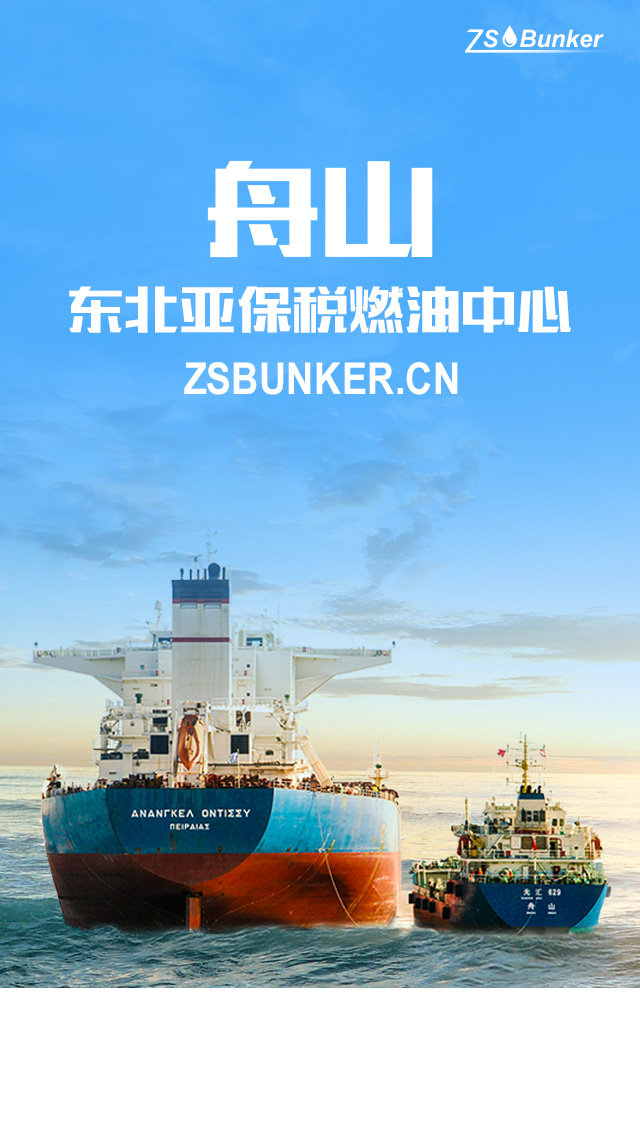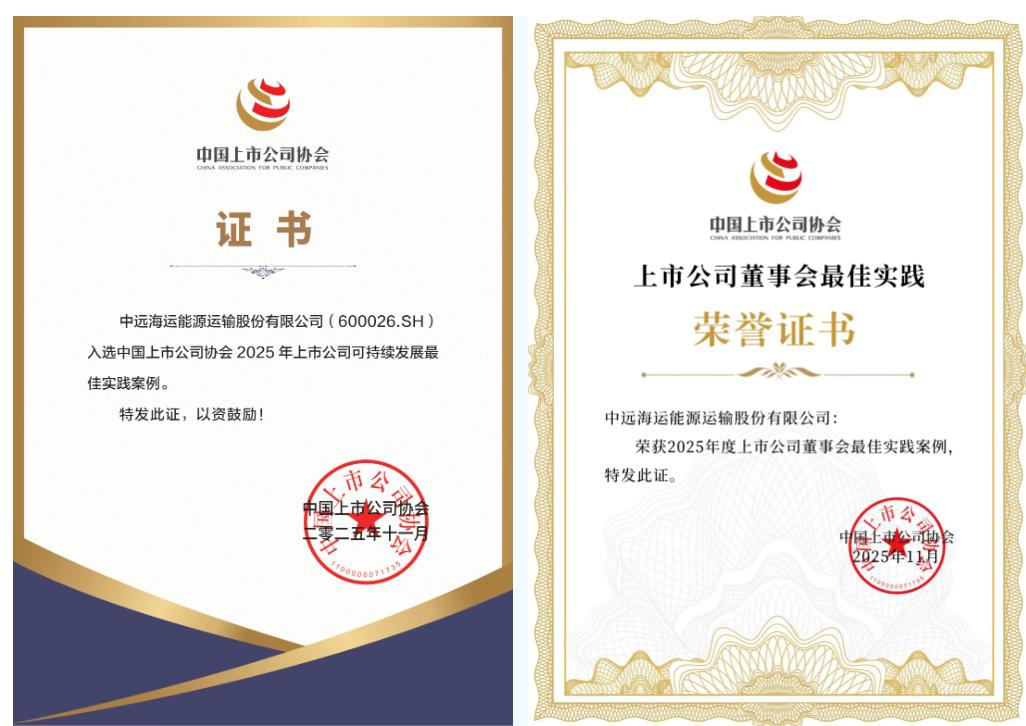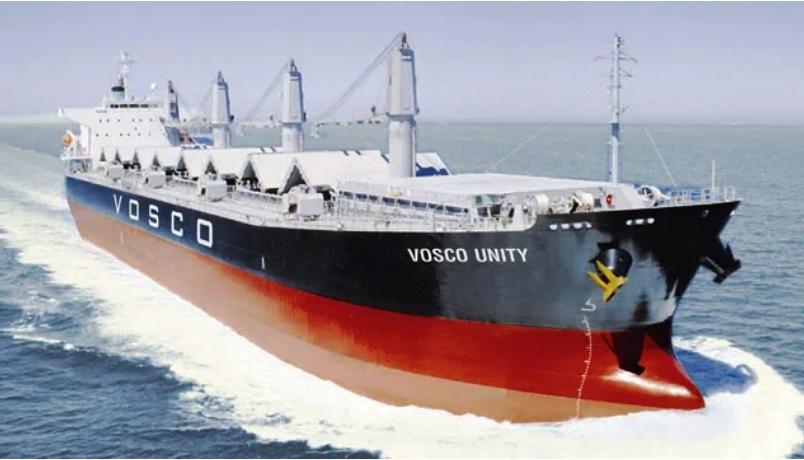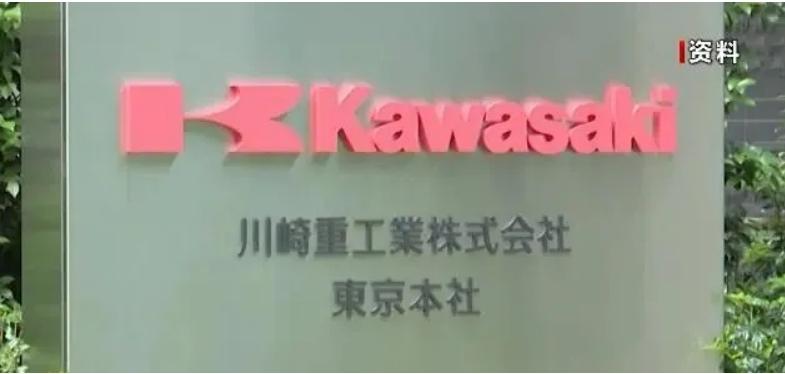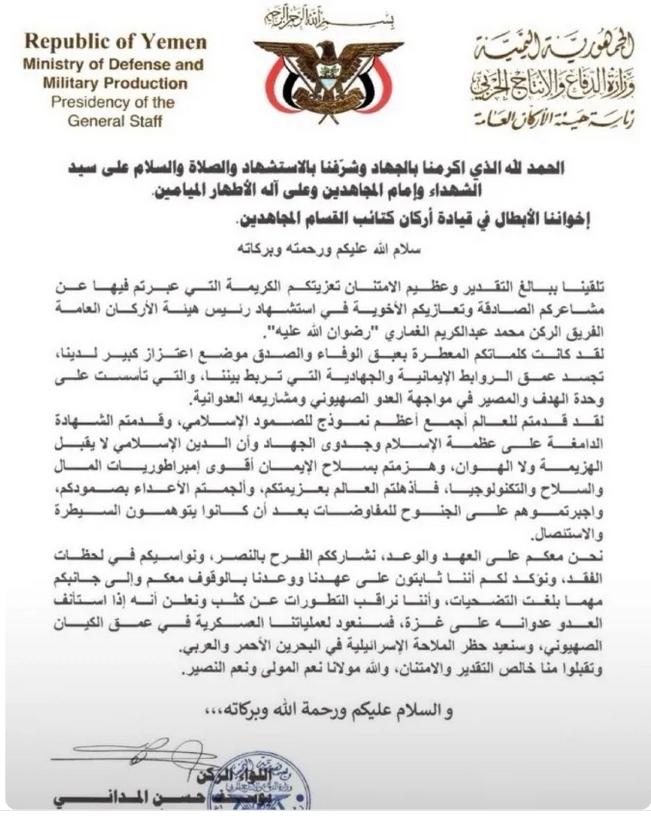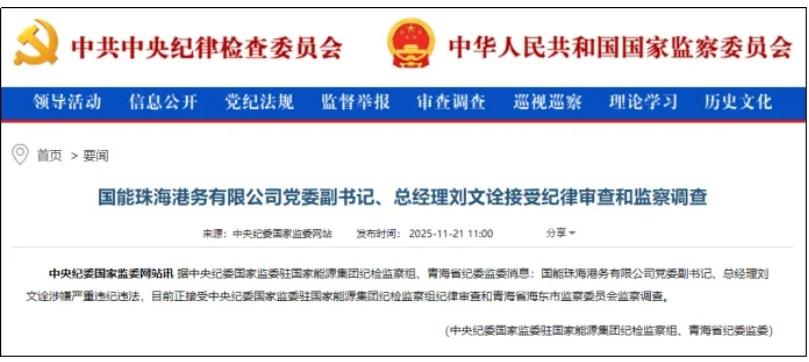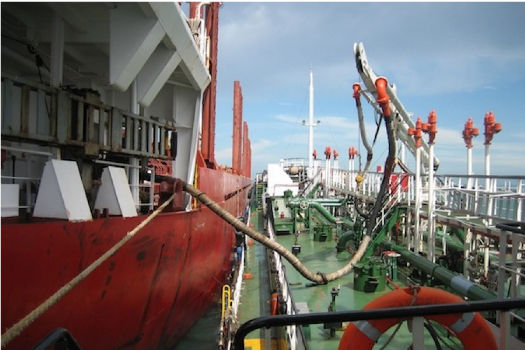
【摘要】在期租合约下,租家需提供燃油,那么提供合格燃油的责任是绝对的还是只要尽勤勉就可以?在燃油市场波动的情况下,如果市场的油价高于合同油价,租家很多时候会选择少还油;而如果市场油价低于合同油价,租家往往会故意多还油。如果碰到这种想从油价中赚取利润的情况,船长是否有权利拒绝加多余的油呢?本文通过一些案例简单来谈谈关于船舶燃油的若干问题。
【关键词】还船油量、油价、质量、索赔
在航运实务中,出现争议在所难免。当然有些争议是可以避免的,但如果人为疏忽,争议出现了,那么又当该如何解决呢?首先要做的就是拿起租约合同,仔细认真看看合同对应的条款是如果规定的。如果条款都列明了船东租家各自的责任分担,那么就依条文来,该是谁的责任风险就是谁的,怨不得对方。但是如果另一方向从中获取利益(也可说不当得利),比如市场油价低于当时租约的合同价格,租家想多还油赚取利润,那么在这种情况下,船长是否有权利拒绝接受租家安排多余的油呢?这个量在多少范围内算是合理的呢?
那么先来看看期租合同常见的NYPE和BALTIME格式对应的燃油条款。
其中NYPE 46格式的第二条描述如下:
That the Charterers shall provide and pay for all the fuel except as otherwise agreed, Port Charges, Pilotages, Agencies, Commissions,Consular Charges (except those pertaining to the Crew), and all other usual expenses except those before stated, but when the vessel puts into a port for causes for which vessel is responsible, then all such charges incurred shall be paid by the Owners. Fumigations ordered because of illness of the crew to be for Owners account. Fumigations ordered because of cargoes carried or ports visited while vessel is employed under this charter to be for Charterers account. All other fumigations to be for Charterers account after vessel has been on charter for acontinuous period of six months or more. Charterers are to provide necessary dunnage and shifting boards, also any extra fittings requisite for a special trade or unusual cargo, but Owners to allow them the use of any dunnage and shifting boards already aboard vessel. Charterers to havethe privilege of using shifting boards for dunnage, they making good any damage thereto.
BALTIME 1939格式第四条及第五条描述如下:
4. Charterers’ Obligations
The Charterers shall provide and pay for all fuel oil, portcharges, pilotages (whether compulsory or not), canalsteersmen, boatage, lights, tug-assistance, consularcharges (except those pertaining to the Master, officersand crew), canal, dock and other dues and charges,including any foreign general municipality or state taxes,also all dock, harbour and tonnage dues at the ports ofdelivery and re-delivery (unless incurred through cargocarried before delivery or after re-delivery), agencies,commissions, also shall arrange and pay for loading,trimming, stowing (including dunnage and shiftingboards, excepting any already on board), unloading,weighing, tallying and delivery of cargoes, surveys onhatches, meals supplied to officials and men in theirservice and all other charges and expenses whatsoeverincluding detention and expenses through quarantine(including cost of fumigation and disinfection). All ropes,slings and special runners actually used for loadingand discharging and any special gear, includingspecialropes and chains required by the custom of the port formooring shall befor the Charterers’ account. The Vesselshall be fitted with winches, derricks,wheels and or-dinary runners capable of handling lifts up to 2 tons.
5.Bunkers
The Charterers at port of delivery and the Ownersat portof re-delivery shall take over and pay for all fuel oilremaining in theVessel’s bunkers at current price at therespective ports. The Vessel shall bere-delivered withnot less than the number of tons and not exceeding thenumberof tons of fuel oil in the Vessel’s bunkers statedin Box 18
如无相反规定,那么在期租期间,很显然租家得提供燃油并且支付燃油费用。那么租家提供燃油且支付燃油费用的责任是绝对的还是尽勤勉就可以?
参《Time Charter》-Chapter 12:
12.1 In general the obligation cast upon the charterers by Lines 39 and40 of the New York Produce form and by Clause 4 of the Baltime form is‘absolute’, in the sense that they must actually providethe stipulated items rather than merely exercise due diligence towards thatend.
租家提供燃油且支付燃油的费用是绝对的, 从某种意义上说,他们必须实际提供规定的项目,而不仅仅是为此尽职尽责。
在较早的案例,Anastassia v. Ugle-Export(1934)案中,该程租航次中约定万一由于冰情导致船舶无法抵达装港,租家需提供破冰船协助,贵族院Wright勋爵认为,租家有绝对的责任义务去提供破冰船协助船舶。
The charterers have contracted to supply the assistance, and that, in myopinion, means either by themselves or by others, so that they cannot justify afailure to do so on the pretext that they had not the icebreakers under theircontrol and could not get them supplied by those who controlled them. In thatsense the obligation is absolute. The charterers assumed the obligation and therisk. It follows equally that the charterers’ obligation is not limited to anobligation to do their best to supply.
在责任分清楚之后,再来看看燃油中几个常见的问题。
一、燃油质量(Bunker Quality)
燃油质量如果不符合要求,很显然会造成船舶燃油燃烧不充分,影响航速油耗;严重点就造成机器包括主机辅机分油机等损坏,其损害赔偿有可能将非常巨大。因此租家提供符合船舶主机要求的燃油将显得非常重要。
在未披露的Nippon Yusen Kaisha v. Alltrans Group of Canada Limited,案中,合同是NYPE租约格式。仲裁员裁决依NYPE租约格式第二条,租家提供准确的燃油的责任是绝对的。租家认为其只需尽勤勉就可以,不服仲裁员裁决开始上诉,但法院认为仲裁员的裁决是不可挑战的,租家在任何情况下,都得为燃油质量负责。
该案可以参《Time Charter》-Chapter 12-Charterers to provide and pay for:
12.8 In NipponYusen Kaisha v. Alltrans (20February 1984, unreported), arbitrators held that there was an absolute duty oncharterers under Clause 2 of the New York Produce Form to provide properbunkers. The charterers were given leave to appeal on the question of lawwhether the duty on the charterers was absolute, as decided by the arbitrators,or was a duty to exercise reasonable care or due diligence only. In the eventit became unnecessary for the court to decide the question because of a furtherfinding, made subsequently by the arbitrators, that the charterers had failedto exercise due diligence in the provision of bunkers. Itwas therefore academic whether the duty was absolute or not;the charterers were liable in either case and the arbitrators’ decision couldnot be challenged.
该问题再次来到London Arbitration 1/88案,在该案中,也是以NYPE租约格式,船舶规范中关于燃油的部分描述为“IF 180CST”。在接收租家安排的燃油,在使用该燃油后,燃油的喷射设备遭受问题,随后导致气缸套和活塞顶损坏;最终船舶不得不绕航进行修理。仲裁员认为租家提供符合船舶机器规范要求的燃油的责任是绝对的,但租家抗辩说合同已经明确规定提供指定的“IF180CST”, 这个是包含在合同中唯一的燃油标准,因此租家只需尽勤勉,去提供该规范的燃油。船东引援Wilford在《Time Charter》该著作第138页说的如下:
The bunkers supplied by the charterers must be of reasonable general quality, suitable for the type of engines fitted tothe particular ship.
租家所提供的燃油总体质量必须是适当的,适合特定船舶所装备的机型。最终法官做出对船东有利的判决。
关于燃油,该书继续说道,似乎有越来越多的共识,即使在租船合同中没有燃油质量条款/燃油规范,租家有绝对的义务提供适合船舶机器的燃油。如果机器在任何方面都不是标准的机型,需要非标准的燃油,船东对租家有告之义务;否则,毫无疑问将简单地提供适合标准机型的燃油。
There appears tobe a growing consensus that, even without a bunker quality clause/fuelspecification in the charterparty, charterers are under an absolute obligation to provide bunkers which arereasonably fit for the vessel's engines. If the enginesare non-standard in any respect, thereby requiring non-standard bunkers, thenit is of course for the owners to so advise charterers whose obligation,otherwise, is simply to provide bunkers which would be reasonably fit for thestandard engine of the type in question.
如果因为租家提供的燃油有问题,导致了船期延误,比如需要做化验,或者把油驳出去等等,在这种情况下这些延误是因为租家方的原因造成的,则租家不可以停租。可以参Nourse v Elder Dempster (1922)案。
同理,如果是因为燃油本身的问题,比如燃油是受制裁的问题油,那么所造成的延误及损失都将由租家自己承担。如London arbitration 13/04 (2004) 645 LMLN 3 案,法官判租家违反了默示条款,提供了受制裁的燃油,导致船舶被扣,船东有权利索赔由此造成的一切损失。
Accordingly, the charterers were in breach of an implied term of thecharterparty to supply properly authorised bunkers to the vessel during thecourse of the chartered service and liable to indemnify the owners againstlosses that flowed from the charterers' instruction to take on bunkers in Iraqwhich were in fact supplied without the relevant UN authorisation.
The owners were entitled to the reasonable costs incurred in procuring thevessel's release, including associated expenses.
关于燃油质量问题,涉及到燃油样品,取样等方式将另文再述。
二、燃油数量(Bunker quantity)
常见的燃油数量条款,比如只有两种油,高硫重油和低硫轻油;当然实际情况可能还有更多种类的,比如还有低硫重油和高硫轻油。如果假设只有高硫重油和低硫轻油,相关的条款大致可分为如下:
i) Bunker quantity ondelivery about HSFO 1,000mts and about LSDO 50mts, Bunker quantity onredelivery to be about the same as quantity & grade on delivery. 这类条款的本意就是船东交给租家多少油,那么租家就按照与交船油量/种类大约一致来还船。
ii) Bunker quantity ondelivery about 1,000mts HSFO and about LSDO 50mts, Bunker quantity onredelivery as on board. 这类条款就是租家不需要还油,还船的时候船上剩多少就是多少。
iii) Bunker on deliveryabout 1,000mts HSFO and about 50mts LSDO, Bunker on redelivery about 500mtsHSFO and about 50mts LSDO. 这类条款,可能船东处于某种目的,比如修船,或者如果是二船东的话,背靠背再还给原船东;而要求还船的时候还某个量。
那么首先来看看,这里的“about”,大概是多少量。在LondonArbitration 13/03 案中,交船的油量为1,598.80吨IFO,实际还船的时候少于这个,租家抗辩说应该给予about,5%的偏差量来考虑,也就是说他们有权利还最少的量1,518.86吨IFO(1,598.80*0.95),船东只能依此数来索赔损失。法官认为基本上不可能做到还船油量与交船的时候一致,应该给予这个5%的偏差量,法官最终判:如果租家还船油量在这个5%的偏差范围内则不构成违约。
The Tribunal held that there was every reason for a margin to be allowedsince it was not always possible to obtain precisely the same amount of bunkersto be on board on redelivery as on delivery. They concluded that Chartererswere not in breach if they were within a 5% margin of the delivery quantity.
该问题随后来到London Arbitration 15/13。在该案中,船东在还船前12天,提醒租家需要至少添加133吨IFO,但是租家在还船前,仅仅在卸港安排了95吨IFO。租家认为他们应该给予5%的偏差量,但相反,船东认为这个量并没有标准,应该仅仅是2%的偏差量。法官认为任何接受绝对的5%的量,那么将导致租家为了节约成本,少还油。如果在还船前,能够给船舶添加燃油的话,与之前London Arbitration 13/03案相反,如本案的情况,在卸港可以安排燃油的话,那么租家需继续安排燃油,那些额外的因为天气等原因造成的延误届时可以考虑在内,因此在本案中不超过2%的偏差将更为恰当,还船油需不少于98%的交船油数,船东有权利索赔由于租家少还船造成的损失。
Held, that the issue was theproper meaning of the word “about” in the context of the redelivery amount. Inthe tribunal’s view any absolute acceptance of a shortfall of 5 per cent acrossthe board would lead to an unacceptable situation where charterers would try tosave costs by redelivering with a 5 per cent shortfall. If the vessel was ableto stem bunkers shortly before redelivery, as happened in the present case, thefurther tolerance which might be needed to account for unexpected weather conditionsseemed to the tribunal to be less justifiable than a case where the chartererswere conveniently able to stem bunkers at the last discharge port aconsiderable distance from the redelivery port, where sailing conditions mightbe more relevant to the amount which might reasonably be expected to be onboard on redelivery. Accordingly, notwithstanding the decision in LondonArbitration 13/03, the tribunal’s view was that a shortfall of no more than 2per cent was appropriate in the present case. The respondent should haveredelivered the vessel with not less than 98 per cent of the amount of bunkerson board on delivery under the charter and the claimant’s claim for US$5,790under this head succeeded.
在实务中,由于市场油价低于合同油价,曾碰到租家想在新加坡安排更多的燃油,试图去赚取油价差。在发现租家此意图后,就提醒租家按租约还油是租家自己的责任义务,如果到时候任何超出交船油量的部分将按他们在新加坡定油时的价格来结算。
Thanks forCharterers’ last, but it’s the charterers’ obligation to redeliver thecontractual bunker qtty; As the charterers note that the Owners have fulfilledtheir obligation to deliver the contractual bunker qtty.
In presentcase, If the charterers no willing to stem the bunker as per Master’scalculation, insist to stem more bunker for the vessel, which they shouldconfirm any exceeded qtty to be settled at their stem price in Singapore, notprice in the c/p.
Assume thecharterers may aware that the Master as one professional captain, his figuresare fair for both parties.
If thecharterers contended that BOR still may less than BOD, Then they may stem morebunker for the vessel in Singapore, but Owners repeat that any exceeded qtty (for the qtty which exceeded BOD ) to be settled at the price they stem inSingapore.
Thanks forCharterers’ kind consideration in this regard.
碰到这种情况,为了避免事后出现不必要的争议,在租家安排加油前,一定要让船长先计算好需要添加的燃油量。同时需注意,很多时候船长会考虑额外的富余量,也就是船长计算的偏保守,那么这种情况下,船东需要做的就是,对比合同中的油价和市场油价,看看是稍微少点还是稍微多点对自己比较有利。如果对自己有利,那么就保持沉默,或多或少,都是租家自己安排的,那么将只能按照租约中的价格来结算。如果租家刻意少还油或多还油,对船东不利的时候,一定要第一时间提出来,保留船东自己的权利。
在The Captain Dimantis案中,合同第三条规定如下:
That the Charterers, at the port of delivery, and theOwners, at the port of re-delivery, shall take over and pay for all fuelremaining on board the vessel at U.S.$85 per long ton for IFO and U.S.$120 perlong ton for Diesel Oil, the vessel to be delivered with bunkers as on boardbut sufficient to reach nearest main bunkering port.
在驶往卸港的时候,船上有足够的燃油,并且也足够在卸完后抵达最近的加油港口。但租家指示船舶在还船前,加满油,其中IFO油价56USD/PMT,MDO103USD/PMT,低于租约中的价格。船长,按船东的指示,拒绝执行租家该指示,租家于是需求找船东索赔所谓的利润损失。Ackner法官判租家没有权利这么做,这安排并不是合同下的要求。此判决也被上诉院的Denning勋爵支持,租家不允许以这种方式来赚取利润。
Ackner, J., held that the charterers had no power to orderthat fuel be taken on which was “in no way required for charterparty purposes”.His decision was affirmed by the Court of Appeal. Lord Denning, M.R., said, atpage 348, that “all the fuel” in Clause 2 means “all the fuel which is‘reasonably required in the course of the charter service and for the purposethereof’” and that “the charterers should be allowed considerable discretion asto what is reasonably required”, but they could not (which were the factsbefore the court) “take on these additional amounts solely in order to make atrading profit thereafter”
该案也可参《Time Charter》-Chapter12:
12.5 Commenting on the above case in The Captain Diamantis [1977] 1 Lloyd’s Rep. 362, at page 367,Ackner, J., said: “The provision [to provide and pay for fuel] does not relievethe shipowners from the obligation of seeing that the vessel is in a seaworthycondition in respect of the supply of fuel… Thus it is the duty of the masterto give the charterers correct information, to enable them to provide therequisite quantity of fuel… ”. It is suggested that the owners’ responsibilityfor providing information is not confined to matters of seaworthiness. Underthe owners’ general duty of co-operation they must not unreasonably fail toprovide the charterers with information about the needs and characteristics oftheir ship that may reasonably be required to enable the charterers to performtheir duty to provide what the ship needs.
因此如果碰到类似的,租家可以多还油的情况,船东可以明确提出来,超过交船油量的部分按市场价格结算。如果租家不同意的话,就明确指示船长,以船长的名义通知租家不接收租家安排的,超出合同部分的燃油。通常情况下,供油商在收到这种邮件,将会找租家核对油量问题,不会随意就开始供油,因为供油商并不清楚,船长是否真的在加到一半的时候要求停止供油。
这个允许的偏差量的问题,通常需要考虑到具体航次的实际情况,比如如果在新加坡加油,卸港是东南亚或者中国的话;或者是直接在卸港才安排加油的话,这些情况下都非常容易计算出需要补多少油,这个时候按London Arbitration 15/13中法官的解释,偏差量应该在2%之内。但如果去执行中国-智利-中国,其中租家安排挂靠俄罗斯远东港口比如NAKHODKA港加油,那么针对一个需约70天的海上航行的航次,这个时候如果租家在NAKHODKA加油导致了最终超出去了交船的油量,那么应该给予大一点的偏差量。
在另一方面,如果租约规定交船的时候油量大约600吨,结果实际交船的时候远超这个数,则租家有权索赔损失。如在The Pantanassa案中,关于交船油的条款,租约规定:…to be delivered with bunkers as aboard at thecurrent Moji price, plus barging (expected about 6/700 tons)…但在实际交船的时候有936吨。虽然船东的经纪人在合同中关于油量的有加入“in good faith”,但Diplock 勋爵认为船东对于他们的预计的油量并没有什么合理的理由,船东违约,船东得为他们预估不准负责。
Diplock, J., held that theowners were in breach of contract. Having acknowledged that the figures hadbeen inserted honestly, he said: “but, when I look to see whether [the owners]have reasonable grounds for their estimate, I see no reason why I should nottake as the knowledge of the shipowners – and it is they who are proffering theestimate—such knowledge as their responsible officials have or ought to have.”
很显然,在这种情况下,租家有权利索赔损失,不仅仅包括可能订到便宜的燃油的油价差,还有随之而来的运费索赔,因为多了燃油导致少装货。当然这种情况是在吃水受限制,或者船舶能够满载的情况下才会出现运费索赔;但如果船舶不满载,则没有运费索赔一说,因为不管船东多交了多少油,都不会影响到租家的最大装货量问题。
这个问题可以参《Time Charter》-Chapter 13:
Sometimes there will beincluded within this clause an estimate of the amount of bunkers that will beon board at the time of delivery. It has been held that where the estimate isexpressed as ‘expected about’ so many tons, there is an obligation on theowners to provide an estimate which is not only honest but is based on reasonablegrounds, having regard to the information which those responsible officers haveor ought to have. This is by analogy with the authority on the “expected readyto load” provisions, mentioned at paragraphs 3.58 et seq., above.
但是如果租约规定交船的时候油量为1,000吨,但实际在交船的那一刻,只有500吨,那么租家是否有权利取消合同呢?在TheNorth Sea案中,租约以Asbatime格式,一个期租航次,期租第34到45行描述如下:
The ship tobe placed at the disposal of the charterers at charterers’ berth, Hong Kong ordropping last outward sea pilot Hong Kong in charterers’ option, the ship to beon her delivery “in every way fitted for container service.
合同第三条,关于交还船燃油条款的描述如下:
The vesselshall be delivered with: See Clause 56.
第56条要求:
The ship to be delivered with certainstipulated quantities of bunkers. In the cancelling clause (Clause 14) thenotice of readiness provision was deleted and it was provided instead that thecharterers should have the option of cancelling “should vessel not have beendelivered on or before 10th August 1995 1200 hours”.
船东给租家发的交船通知中说明将于8月10日1000LT在香港交船给租家。但是租家一直未给航次指示,在8月10日1200LT的时候,该轮还在香港锚地,继续加油。租家以船舶未处于交船位置及没有约定的交船油量为由,取消合同。
然而仲裁员查核发现,纵然船舶没有如第56条约定的交船油量,但船上所存的燃油足够使该轮能抵达它下一个意向港口,船东也可以在下个意向港口继续给船加油以满足交船油量要求。关于燃油,上诉院Mance勋爵认为,船舶已经完全符合第34到45行的要求,在各个方面符合集装箱服务之需求,租家无权取消合同。
As regards the bunkers, itwas held by the Court of Appeal, affirming Mance, J., on this point, that sincethe ship complied fully with the requirements of Lines 34 to 45 and was “inevery way fitted for container service”, the charterers were not entitled tocancel. The fact that the ship did not have on board the quantities of bunkersrequired by Clauses 3 and 56 was irrelevant, because as a matter ofconstruction of the charter, Clauses 3 and 56 were not linked to the deliveryprovisions of Lines 34 to 45 and by 1000 hours, as well as by 1200 hours on 10August, the ship had sufficient bunkers to enable her to sail in safety for hernext port. The ship may have been in breach of Clause 56 but that could giverise only to a claim in damages.
同样,租家的辩解也被Hobhouse勋爵拒绝。
In rejecting thecharterers’ argument in The NorthSea that compliance with the requirements of Clause 56 wasnecessary before the ship could be validly tendered for delivery, Hobhouse,L.J., at page 25 of the Court of Appeal report, said: “The charterers” argumenthas to carry through the terms of cl. 3 and cl. 56 into the primary deliveryprovision. As the Judge pointed out, if that is to be done, no latitude is tobe allowed beyond that permitted by the use of the word “about” (The Tres Flores [1973] 2 Lloyd’s Rep. 247 at p. 252, per Lord Justice Roskill).An excess of any of the categories of fuel will be equally as fatal to owners’rights as will be a shortfall. Further, if one applies this reasoning to cl.56, there are other clauses in the charter-party which are equally susceptibleto the same argument. An acceptable and appropriate construction to place uponthis charter-party is that lines 41 to 45 [the requirements as to the state ofthe ship on delivery] are to be the critical provisions and provided that theyare complied with in all respects that suffices for the purposes of effectingdelivery.” Hobhouse, L.J., noted (also at page 25) that parties could providefor the service of a notice of readiness which implicitly required the ship tohave satisfied the delivery bunker clause before she could be tendered fordelivery. However, it is not thought that is the effect of the notice ofreadiness provisions of Clauses 5 and 14 of the New York Produce form, or thatHobhouse, L.J., was suggesting that it was.
对于该案的问题可以参《Time Charter》-Chapter 8,如果与租约约定的油量或多或少这些问题不影响船舶有效服务的话,则租家无权以此理由来取消合同。
8.72 As a general rule, the fact that theship may have less than the minimum quantity of bunkers required on deliveryunder Clause 3 of the New York Produce form (or more than the stipulatedmaximum) will not entitle the charterers to refuse to accept delivery, providedthat the deficiency or excess does not make the ship unfitted for the servicewithin the meaning of Lines 21 to 24: see by analogy The North Sea [1999] 1 Lloyd’s Rep. 21 (C.A.), below. However, if astipulation as to the quantity of bunkers on delivery were expressly orimpliedly linked to the delivery requirements of Lines 21 to 24, then it wouldhave to be complied with before the ship could validly be tendered fordelivery: see The North Sea,below, per Hobhouse,L.J., at page 25 of the Court of Appeal report, andparagraphs 8.41 etseq., above. It is suggested, however, that in the case of a long-termtime charter, the courts will be reluctant to draw the inference that such aprovision is a pre-condition for delivery where the link to Lines 21 to 24 hasnot been made explicitly.
但是在另一方面如果在租约中船东已经保证了船存燃油足够执行租家意向的航次任务,那么如果短少了,则船东得为此负责。同理,如果租家在安排加油计划的时候,由于船长的计算失误,导致了添加的燃油不足以执行整个航次,租家需在半途额外绕航加油,则船东得为此额外加油的时间及费用负责。
三、燃油价格(Bunker price)
一般租约中都会约定,交船油价多少,还船油价多少。常见的有比如:Bunker price at both ends: HSFO xx usd/pmt, LSDO xx usd/pmt. 这里也可以细分多种油;简单点就交船还船的油价一致。
但是如果租约中未规定交船还船的油价,则适用市场油价,如TheGood Helmsman案,Ackner勋爵认为,如果租约中未约定交还船油价,在交船和还船的时候,则默示适用市场油价;因为在租家在交船,船东在还船的时候需要按市场油价来购买燃油。对此可以参《TimeCharter》-Chapter13:
Ackner, L.J., said, at page419, that if there is no express term stipulating the price payable, then “themarket price prevailing at the port when and where the vessel is delivered or…redelivered… will be implied”, since “the charterers on delivery and the ownerson redelivery take over for their own use property which they would usuallyotherwise have to buy on the open market”.
同理,如果租家少还油,那么少的部分,也应该按市场价格来结算。可以参Steamship对于租家少还油需补偿船东损失的如下解释:
If there is a contractual obligation to redeliver with ‘about’ the samequantities as on delivery, and Charterers deliver with a quantity which is lessthan this amount, they will be in breach of the charterparty. This will be thecase even where the circumstances that have put Charterers in breach are beyondtheir control. The key question will then be what damages are payable as aresult. The ordinary measure of damages would be that which would out Owners,in this case the innocent party, in the position they would have been in butfor Charterers’ breach.
If Charterers redelivered the vessel with the correct quantity of bunkers,Owners would pay for those bunkers at the price set out in the charterparty.However, where the vessel is redelivered with a shortfall, Owners will have topurchase bunkers at the higher market price to make up that shortfall. On thisbasis, the market price for bunkers is likely to be the measure of loss for anybunkers less than “about the quantity on delivery”. Whilst it will depend onthe facts, for example when and where redelivery bunkers were stemmed, andwhere Owners will next take bunkers on board, the price paid for the bunkersprior to redelivery may be a sensible measure of the market price and thereforemarket loss.
如果还船的油量超出了交船油数,超出的部分是按市场油价,还是合同油价还是租家定油的价格结算呢?在London Arbitration 17/15案中,租约以NYPE格式,执行一个Vietnam/US Gulf(越南到美湾)航次。租家按船长要求定油,结果最终还船的油量在考虑了5%的偏差量后仍然超出交船油量272.427吨。租家主张超出的部分油价应该按合同的价格,也就是USD500/PMT来结算。船东则主张超出的部分应该按当时美湾的市场油价USD328.50/PMT算;租家当时定油的价格为USD408.50/PMT。在如何计算的途径上,法官采用商业的基本常识,最终判租家有权利找船东收回多支出的燃油成本,也就是USD21,794.16 (272.427 x (408.50 –328.50)。
The Tribunal observed that whichever party was successful in their argumentwould make a windfall profit. To decide how to approach this matter, theTribunal applied what they termed ‘business common sense’, and concluded thatCharterers were entitled to receive the price that they had paid for the excessbunkers and no more (i.e. an additional US$21,794.16 (272.427 mt x (US$408.50 –US$328.50)) to that shown in the Owners’ final hire statement).
另外一个问题,在期租期间,租家因为停租事项或者有航速油耗索赔导致的燃油消耗,如果租约无相反规定,那么租约中的交还船油价将在这些事项中不适用,应该适用市场油价或者租家最近一次定油的价格来计算租家的损失。也就是说,租约中交还船的油价,只适用于交船、还船的燃油金额计算上。
2006年的《“扬子江8”轮期租合同争议案》,在该案中涉及到修理期间所消耗的燃油,其结算价格到底是以租约中的价格还是市场价格的问题。争议及相关判决如下:
(1)油款差价2,051.43美元
申请人认为,该轮停租后在宁波北仑港修理期间所耗燃油,根据租船合同第13条的规定,交还船时的燃油结算价为重油每吨238美元、轻油每吨335美元,只要实际履约过程中出现交还船情况,燃油的结算就应按此价结算,而被申请人却按实际进价重油每吨375美元、轻油每吨581美元结算,因此产生重油款差价663.491美元 [(375美元/吨-238美元/吨) x (74.843吨-70吨)] 、轻油款差价1,387.932美元[(581美元/吨-335美元/吨) x(37.242吨-31.6吨)],合计2,051.43美元。
被申请人认为,租船合同中规定的燃油价格是指租期开始时和结束时对船存燃油款的结算价格,并不是指停租前后燃油款的结算价格,申请人按租船合同规定的交还船时的燃油价格计算停租期间的船舶消耗燃油的价格,是不合理的,被申请人按实际燃油价格计算,并无不妥。
(1)油款差价2,051.43美元
经查,该轮于2005年11月23日至12月19日在停租后于宁波北仑港修理,其间消耗重油4.843吨(74.843吨-70吨),消耗轻油5.642吨(37.242吨- 31.6吨),双方当事人对此并无争议。双方当事人争议的问题是,应当按照租船合同规定的油价结算油款,还是按实际加油价结算。租船合同第13条规定:“燃料 租船人接受交船时及船东还船时,船上所存全部油料,按船东与租船人的协议价。FO USD238/MT,MGO USD335/MT结算付款。”仲裁庭多数意见认为,虽然租期内停租前后不能认定为租船合同规定的交船和还船,但在定期租船合同履行过程中,由承租人供应燃油,承租人可以在不同的地区,以不同的售价购油添加燃油,有时油价可能高于租船合同规定的油价,有时可能低于租船合同规定的油价,租船合同之所以规定交还船时的油款结算价,其中一个重要的原因就是因为添加的燃油油价是浮动的,不是一成不变的,为减少当事人油款计算上的繁琐,则采取固定油价,而不采取实际油价。因此,本案停租修理期间消耗的重油和轻油的油价,应参考交还船时的油价确定,不管油价高于或低于租船合同规定的固定价。此外,本案是2年+2年的长期定期租船,被申请人本应知道其间会有停租修船事由,但未与申请人在租船合同中对停租修船期间的油价另行约定,表明被申请人接受此期间的油价按交还船时的油价结算。被申请人按实际油价计算油款,并从2006年1月份上半期的租金中予以扣除,不予支持。据此,被申请人应向申请人退还多扣的油款合计2,051.42美元[重油663.49美元(375美元/吨-238美元/吨) x (74.843吨-70吨) +轻油1,387.93美元(581美元/吨-335美元/吨) x (37.24 2吨-31.6吨)]。
如果该案中无相反规定,基于无修改的NYPE46租约格式第15条的停租条款如下:
That in the event of the loss of time from deficiency of men or stores,fire, breakdown or damages to hull, machinery or equipment, grounding,detention by average accidents to ship or cargo, drydocking for the purpose ofexamination or painting bot tom, or by any other cause preventing the fullworking of the vessel,
…and the cost of any extra fuel consumed in consequence …thereof, and allextra expenses shall be deducted from the hire
在航速油耗索赔中说的是thecost of any extra fuel, 及随后的all extra expenses,那么显然在船东安排修船的期间,燃油的成本或者任何额外的费用,应该是船舶在停租期间,消耗的燃油在修船那个期间对应的成本。那么应该按市场价格或者租家最近一次定油的价格来结算,而不应当按合同油价。
四、燃油财产(Propertyin bunkers)
一般长期期租合同,都会约定交船的燃油价值需同第一笔租金一起支付。比如:Bunker value ondelivery to be paid together with first hire payment. 当然如果是一个航次期租的话,计算这么约定,往往燃油金额远超租金,租家会拒绝支付交船的燃油价值,而直接支付租金到预计的还船时间。这也是租金条款中,常见的Charterers areentitled to deduct the bunker value from last sufficient hire payment.
业界闻名的OW破产,导致了无数燃油方面的争议。因此船东为了避免因为租家未支付油款,供油商随后采取扣船等手段找船东索赔油款等问题。在租家安排加油的时候,谨慎的船东应该让租家提供类似于以下的BUNKER NON LIEN NOTICE。
To: BunkerSellers/Trader and or Supplier [ insert name of Sellers/Trader and or supplier,their address and contact details]
Fm: Buyer[insert name of charterers, their address and contact details]
Date:[insert date]
DearSirs/Madams,
Please totake note that we,[ insert name of charterers, their address and contactdetails ] as the time charterers of the vessel [insert name of vessel ] areordering bunker [insert specification of bunker and quantity to be supplied ]on [ insert date ], which will be supplied for the vessel [ insert name ofvessel ] at [ insert name of port, berth or anchorage for bunkering] o/a[insert the date ] are on our account and our credit to the vessel [ insertname of vessel ] on charter to us, and the bunkers to be supplied for thevessel and bunkering service are solely for our account as the time charterers.
Neither the vessel [insert name of vessel ], the Owners [insert name of Owners ] nor theMaster [insert name of Master] is a party to the bunker supply contact, and nolien, encumbrance or any rights shall arise on the vessel.
Yours faithfully,
TheSeller/Trader or Supplier Thecharterers of
[insert nameof Sellers/Trader or Supplier] M/V[insert name of vessel]
[insertname of charterers]
…………………………………….. …………………………………..
[insert nameand title of signatory] [insert nameand title of signatory]
同时指示船长,在加油前,让供油商或者驳船的船长签字确认类似如下的BUNKER NON LIEN NOTICE。
To: The head Owners and Master of MV [ insertname of vessel ]
Fm: Bunker Sellers or Supplier [ insert name ofSellers or supplier, their address and contact details, name of barge etc]
Date: [insert date]
Dear Sirs/Madams,
Pleaseto take note that the bunker [insert specification of bunker and quantity to besupplied ] will be supplied for the vessel [insert name of vessel] by the barge[ insert name of barge, barge IMO. No.] at [ insert name of port, berth oranchorage] today [insert date], were ordered by Messer [ insert name ofcharterers, address and contact details ].
We,[insert name of bunkers sellers or supplier, or master of bunker barge ],hereby confirm and acknowledge that the bunker and bunkering services which tobe for Messer [ insert name of charterers, address and contact details ] theirsolely account, and neither the vessel [insert name of vessel ], the Owners[insert name of Owners ] nor the Master [insert name of Master] is a party tothe bunker supply contact, and no lien, encumbrance or any rights shall ariseon the vessel.
Yours faithfully,
The Seller or Supplier The Master of
[insert name of Sellers orSupplier] [insert name of vessel]
………………………………………. …………………………………..
[insert name and title ofsignatory] [insert name of theMaster]
供油商在收到此类NOTICE的时候,一般都会谨慎起来,如果感觉有风险的话,他们会去找订油方,比如租家查核该问题。
当然,最好是在签订前,就把类似的条款并入到租约中去。如果租家未按要求提供此BUNKER NON LIEN NOTICE,则船东有权利拒绝加油,所有由此造成的延误,时间损失等租家独自承担,且租家不可以停租。
接下来,再来看看BALTIME及NYPE相关条款的细节问题,如下:
BALTIME 第4条:
TheCharterers shall provide and pay for all the fuel…
NYPE 46 第2条:
That theCharterers shall provide and pay for all the fuel except as otherwise agreed,…
NYPE 93 或NYPE2015第7条:
TheCharterers, while the Vessel is on hire, shall provide and pay for all the fuelexcept as otherwise agreed,…
在NYPE93或者NYPE2015中,比NYPE46或BALTIME多了while theVessel is on hire。如果没有加入类似的,While the Vessel is on hire或者While on hire,如果无相反规定,那么租家将得一直为船舶期租期间的燃油负责,不管船舶是在停租还是在别的情况下。如在The Arild 案中,McCardie法官判租家得持续为船舶在维修的停租期间提供燃料,其责任并未终止。该问题可以参《Time Charter》-Chapter 12:
12.26 The obligations of the charterers underthis clause continue throughout the period of the charter, save only wherethere are express words to the contrary. Thus, under the equivalent provision(Clause 4) of the Baltime form, the charterers remain liable to pay for fuelused even while the ship is off-hire.
The Arild was off-hire duringcertain periods of repair. Bunker coal was consumed during these periods. Thecharterers were obliged by the charter to “provide and pay for all the coals,fuel”, but argued that this obligation should be suspended during off-hireperiods. McCardie, J., held that the charterers’ obligation continued.
在London Arbitration 9/16 (2016) 948 LMLN 4 案中,租约以修改过的NYPE46格式,租家需安排还油。在2014年1月28日,租家发邮件给船东,声称由于现金流有问题,要求船东替租家先支付油款。在1月3日,双方达成如下补充协议:
CHRSWILL REFUND OWNS TO THEIR NOMINATED BANK ACCT FOR THE VALUE OF THE BUNKERSSUPPLIED … AS PER BUNKERS SUPPLIERS’ INVOICE WITHOUT ANY DEDUCTION, LATESTBEFORE 20TH FEB 2014 …
OWNERWILL REFUND CHARTERER FOR THE OVERPAID HIRE AFTER RECEIVING THE BUNKER COST
ALLOTHER TERMS AND CONDITIONS OF CP TO REMAIN UNCHANGED.
船东依据此补充协议,支付给供油商557,020USD的油款,在2014年2月6日的时候开具船东的发票连同供油商的发票一起发给租家。然而租家并未安排付款,3月5日租家通过经纪人发了如下邮件:
“Bunkersdue to owns: USD557,020.00
Hiredue to chrts: USD123,351.96
Balancedue to owns: USD433,668.04
Tobe paid in 3 instalments scheduled asf:
7April: $144,556
17April: $144,556
28April: $144,556
Pleasedto have ows’ confirmation to same.”
船东不同意租家此要求,提起仲裁。
最终法官判租家违反协议,船东胜诉并且有权索赔利息。
Held, that the owners dulyprovided bunkers pursuant to the agreement dated 30 January 2014 and invoicedthe charterers appropriately. The charterers failed to pay what was due underthe agreement, or anything at all in respect of it. The agreement specificallyprovided that the charterers were to pay for the bunkers in question withoutdeduction, so their proposal of 5 March (which in any event was not accepted)was inappropriate in that they sought to take credit for the balance of hirethey claimed.
The charterers had conceded that they did not provide redelivery bunkers,but said that the owners were “obliged … to mitigate the losses”. They said theowners had wasted two days in arranging bunkers and said that that time should,at the hire rate of US$17,250 per day, be for the owners’ account. But as amatter of law and fact that argument was entirely wrong. There was no loss oftime: the charterers – who were unable to perform their contractual obligations– made a proposal on 28 January 2014 which was not acceptable to the owners andit was not until 30 January 2014 that the charterers agreed terms which theowners found acceptable. Further the concept of mitigation applied only where aparty was in breach and the other then had to act reasonably to keep its lossesto a minimum, not so as to reduce the defaulting party’s losses.
The charterers had simply failed to pay for the bunkers in accordance withthe agreement, and the owners were entitled to an award as claimed. They werealso entitled to interest from the due date for payment, 20 February 2014,until the date of payment hereunder, as well as to their costs and interestthereon.
该案也从另一个角度说明,在期租期间,租家安排的燃油是租家的财产。燃油的财产归谁的问题,也可以参《Time Charter》-Chapter 13:在期租期间安排的燃油是租家的财产,船东只是受托人。
13.4 The provision ofClause 2 of the New York Produce form that the charterers are to provide andpay for fuel (see chapter 12, above) coupled with the provision of Clause3 that the charterers shall take over and pay for all fuel at the port ofdelivery, vests in the charterers the property in bunkers during the currencyof the charter, the owners merely having the possession of bunkers on board theship as bailees
另参法官Sheen在The Saint Anna案中说的,如果租家购买了燃油,那么燃油是他们的财产,除非当事人明确,毫不含糊地同意此财产应归属于船东。
It seems to me that if the charterers purchase fuel, thatfuel is their property unless the parties clearly and unequivocally agree thatthe property shall vest in the owners.
五、加油位置
如果租约中,租家已经保证了安全港口,及航行区域也需是安全的话,那么租家所安排的加油港口,对船舶而言也必须是安全的。如果因为加油港口不安全给船东造成了损失,则租家得负责。可以参《Time Charter》-Chapter 12:
12.13 The charterers may in certain limited circumstances beresponsible for damage done to the ship as a result of the unsafety of the bunkering place to which the ship is directed by bunker suppliers if the bunkersuppliers are the charterers’ agents for this purpose, or if the charterers’orders as to bunkering are properly to be construed as orders to bunker at suchplace as the bunkering suppliers may direct.
这类关于加油位置,港口不安全的,可以参之前的安全港口相关的文章。但是如果租家本来安排加油的位置、港口是安全的,而供油商在供油的时候却选择了别的不安全的加油点;在这种情况下,如果造成了船舶损坏,租家无需为安全港口负责,如The Mediolanum案。
The Court of Appeal expressed grave doubt as to whetherthe bunker suppliers were indeed acting as the charterers’ agents in making theselection of bunkering place. In giving the judgment of the court, Kerr, L.J.,suggested that the suppliers might instead be regarded as performing similarfunctions to those of a harbour master or port authority, whose actions wouldnot be those of the charterers, following the judgment of Robert Goff, J.,in The Isabelle [1982] 2 Lloyd’s Rep. 81.
Assuming, “with the greatest misgivings”, that thesuppliers were the agents of the charterers for this purpose, the court foundno liability on the charterers for there had been no breach of their safe portpromise. Moreover, there was no negligence on the part of the suppliers forwhich the charterers might have ‘vicarious’ liability, even assuming that theywere truly acting as agents in directing the ship.
总结:
如果一份不完整的租约,单单一条简单的燃油条款就足以引发出前文所列举的燃油质量、燃油数量、燃油价格、燃油财产及加油位置等争议。因此为了避免出现此类争议,最好的解决办法就是在租约中明确规定。比如燃油质量,如果船舶所耗的是380CST的,那么就在租约中明确规定,租家需添加的燃油规格是“IFO 380CST, ISO 8217:2012”等。这样一来,如果租家安排的燃油与此规格不符,那么造成任何损失,都将租家自己承担。如NYPE 2015租约格式中的第9条(d),如下:
(d) Bunker Quality and Liability
(i) The Charterers shall supply bunkers of theagreed specifications and grades: Click here to enter text. The bunkers shallbe of a stable and homogeneous nature and suitable for burning in the Vessel’sengines and/or auxiliaries and, unless otherwise agreed in writing, shallcomply with the International Organization for Standardization (ISO) standard8217:2012 or any subsequent amendments thereof. If ISO 8217:2012 is notavailable then the Charterers shall supply bunkers which comply with the latestISO 8217 standard available at the port or place of bunkering.
(ii) The Charterers shall be liable for any lossor damage to the Owners or the Vessel caused by the supply of unsuitable fuelsand/or fuels which do not comply with the specifications and/or grades set outin Sub-clause (d)(i) above, including the off-loading of unsuitable fuels andthe supply of fresh fuels to the Vessel. The Owners shall not be held liablefor any reduction in the Vessel’s speed performance and/or increased bunkerconsumption nor for any time lost and any other consequences arising as aresult of such supply.
关于取样的问题,也可以做详细的说明,如(e)款。
(e) Fuel Testing Program
Should the Owners participate in a recognized fueltesting program one of the samples retained by the Owners shall be forwardedfor such testing. The cost of same shall be borne by the Owners and if theresults of the testing show the fuel not to be in compliance with ISO8217:2012, or any subsequent amendment thereof, or such other specification asmay be agreed, the Owners shall notify the Charterers and provide a copy of thereport as soon as reasonably possible.
In the event the Charterers call into question theresults of the testing, a fuel sample drawn in accordance with IMO Resolution MEPC.96(47) Guidelines for the Sampling of Fuel Oil for Determination of Compliance with Annex VI of MARPOL 73/78 or any subsequent amendments thereof,shall be sent to a mutually agreed, qualified and independent laboratory whoseanalysis as regards the characteristics of the fuel shall be final and bindingon the parties concerning the characteristics tested for. If the fuel sample isfound not to be in compliance with the specification as agreed in the paragraphabove, the Charterers shall meet the cost of this analysis, otherwise sameshall be for the Owners’ account.
同理,燃油数量、燃油价格也都可以做详细的说明,尤其是停租期间的耗油及有航速油耗索赔的燃油价格适用问题;如果这些基本的都列明了,那么执行起来就不会有争议,当事人双方都将有章可循。
参考资料:
1、《Time Charter》
海运圈聚焦专栏作者 Alex (微信公众号 航运佬)

 2017-06-06
2017-06-06 3780
3780 





